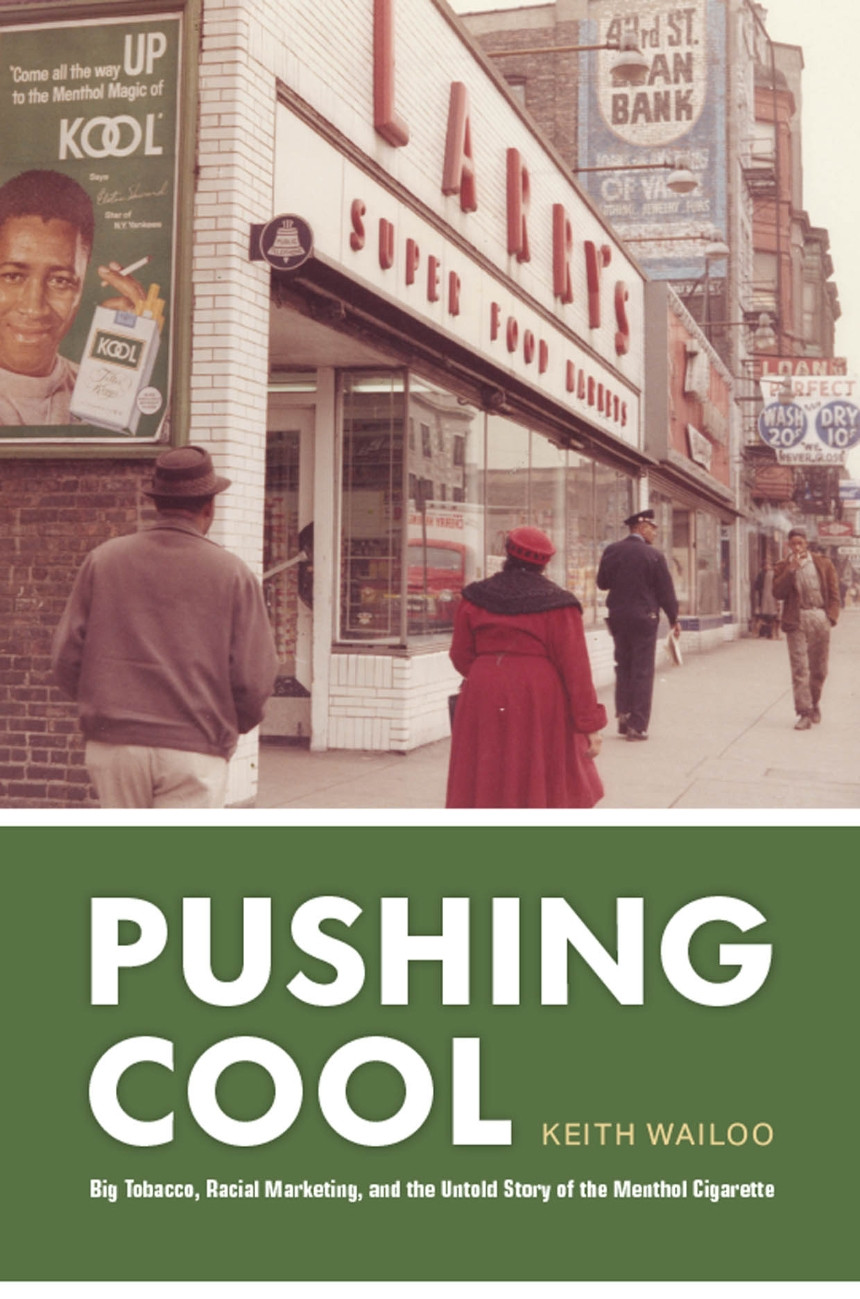On April 29, the FDA announced it would work to ban menthol cigarettes and flavored cigars. Their decision was based on clear evidence of addictiveness, and recognized the harm caused by decades of insidious marketing that cultivated a lethal relationship between minty tobacco products and Black Americans. Mitch Zeller, director of the FDA’s Center for Tobacco Products, said that although anti-smoking efforts have been tremendously effective getting people to quit smoking, “progress hasn’t been experienced by everyone equally” and “certain populations, including African Americans, have been targeted, and disproportionately impacted by tobacco use.”
In Pushing Cool, Keith Wailoo Reveals How the House of Menthol Was Built

In his forthcoming book, Pushing Cool: Big Tobacco, Racial Marketing, and the Untold Story of the Menthol Cigarette, Faculty Scholar Program Committee Member Keith Wailoo, PhD, Henry Putnam University Professor of History and Public Affairs at Princeton University, delves deep into the heart of the tobacco industry to expose the hidden persuaders who worked together to establish racial markets and shape buying habits that target Black Americans—tobacco marketers, psychologists, and social scientists, as well as Black lawmakers and civic groups. Prof. Wailoo’s research into the untold history of Big Tobacco and the intricate web they weaved to sell the sensation of menthol provides unique insight into why 85% of Black smokers use menthol cigarettes when only 29% of white smokers do. In fact, 93% of Black Americans who start smoking begin with the “cool” and “smooth” sensation of menthol. In pulling back the curtain on the tobacco industry, Prof. Wailoo raises ethics questions that cut in three different directions: business, protests, and bans.
In Pushing Cool, Prof. Wailoo writes that “deception as a tool of studying and shaping psychology was at its peak” during the 1970s, but that the history of deceit goes back much further, with researchers engaging in uncertain ethics to sell menthol cigarettes as early as the 1930s. “The line between informing consumers and deceiving consumers is a tricky ethical one, and the book explores why unethical consumer deception has often fallen below the radar of regulation, and how regulating business ethics came to be important (and why it should matter more) in tobacco law,” Prof. Wailoo said.
The ethics of protest is another fascinating question Prof. Wailoo explores in Pushing Cool. “In the late 1980s and early 1990s,” he shared, “local community activists upset at the overwhelming presence of tobacco billboards in poor communities of color engaged in remarkable, and remarkably successful, vigilante behavior—whitewashing billboards.” As an example, Prof. Wailoo tells the story of one of the billboard activists, a Chicago man who called himself Mandrake. “The industry saw this as vandalism and violations of free speech. What then are the ethics of vandalism and lawbreaking in the name of safeguarding the health of one’s community?”
Although the FDA has committed to banning menthol cigarettes and cigars, the agency has not given a specific date. Asked when the ban will be finalized, Zeller said it’s “really impossible to predict.” The agency promised it would develop product standard guidelines that will ban menthol over the next year. As the FDA weighs following through on its promise and confronts the history of racial marketing by Big Tobacco giants, Prof. Wailoo reminds us that ethics is at the core of the FDA’s next steps in the world of menthol. “Do bans work? Are they ethical? Why?” will all be questions decision-makers must reckon with over the next year. “One theme in the book,” Prof. Wailoo says, “is that bans do work— for example, on television and radio advertising, on indoor smoking, on billboards— but that an industry known for uncertain ethics will often strive for new strategies of pushing cool.”